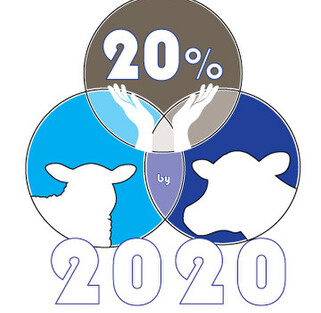Are you interested in driving changes in disease management on farms, with particular reference to reducing antimicrobial use in animals?
This project centres on a participatory, farmer-lead approach, providing support to farmers who have taken on practical strategies to reduce antimicrobial use on farms. Farmers across the Southland and South Otago regions, across all sectors (dairy, beef, sheep and deer) will have opportunities to be involved to varying degrees.
Farmers will be given the opportunity to trial these plans on their farms; and also the opportunity to learn about these plans and antimicrobial stewardship more generally through workshops and field days. By putting farmers in the driver’s seat, we increase the likelihood of acceptance and adoption of the plans, now and beyond the life of the project.
The farmers will be supported by veterinary input to ensure the plans the farmers develop are rooted in science and have the best chance of successfully reducing antimicrobial use in animals, without compromising animal health and wellness.
- The project was funded for 3 years, we are leading into our final year now.
- Year 1: Establishment of a small number (4) of facilitated farmer groups (called ‘Sustainable Health Groups’) to develop several practical strategies for reducing antimicrobial use on farms. These groups will each involve both the red meat and dairy sectors and be located strategically across the Southland and Otago regions.
- Year 2: Hand-over of the strategies to local farmer groups (‘Farmer Action Groups’) (8) who will support a small number (32) of local farms in trialling them. They will also help improve understanding and drive changes in antimicrobial use amongst farmers through field days and workshops. These farmer groups will likely be sector-specific.
- NOW: Further roll-out, with additional farms (160 total) recruited to trial the strategies, under the support and guidance of the previously-established farmer groups. Further workshops and field days will also offer additional opportunities for disseminating ideas and driving change.
The expected project outcomes are:
- Reduction in antimicrobial use on farms.
- Changes in farmers’ attitudes to disease management, with a reduced reliance on antimicrobials.
- Identification of successful and less successful strategies for reduction in AM use
- Dissemination of information, knowledge, and success or otherwise of strategies.
These outcomes will provide indirect benefits to the wider community with regard to antimicrobial resistance (reduced selection pressure), and will be of significant value as we move towards NZVA’s stated goal of significant reduction in antimicrobial use by 2030.
There are 12 recommended strategies:
- Vitamin A, D, & E treatment pre-calving (dairy/beef)
- Colostrum management (dairy/beef/sheep)
- Improved calf milk hygiene (dairy/beef)
- Bearings with hygiene (sheep)
- Treatment/Cull plan (dairy)
- Antibiotic traffic light system (dairy/beef/sheep)
- Mastitis management (dairy)
- Antibiotic waste management (dairy/beef/sheep)
- Dry cow therapy selection (dairy)
- RVM treatment assessment by farmers and vets (dairy/sheep)
- Animal data collection and management (dairy)
- Targeted dry cow therapy (dairy)
The project will also serve as a proof of concept for the farmer-led methodology in New Zealand. Beyond the project, this methodology could be introduced in other regions, or adapted to address other problems.
While VetSouth will manage the project and provide administrative support, we need farmers, industry groups and vets across Southland and Otago to get involved to make this project a success!

